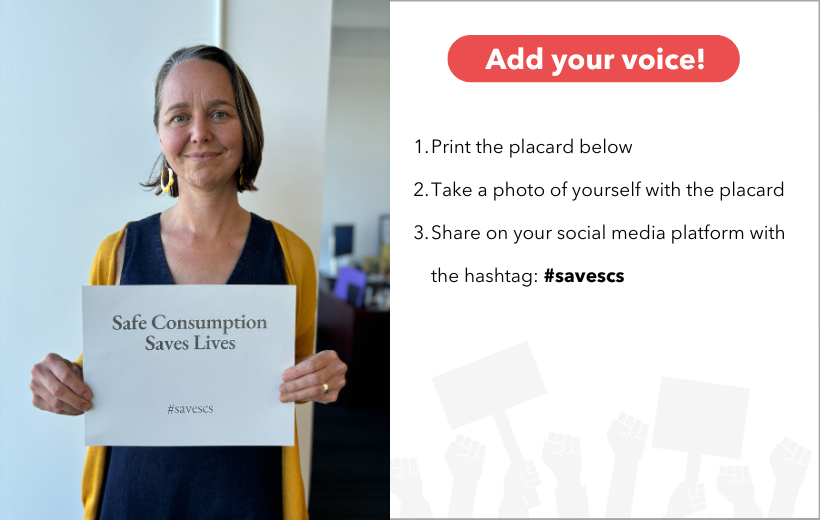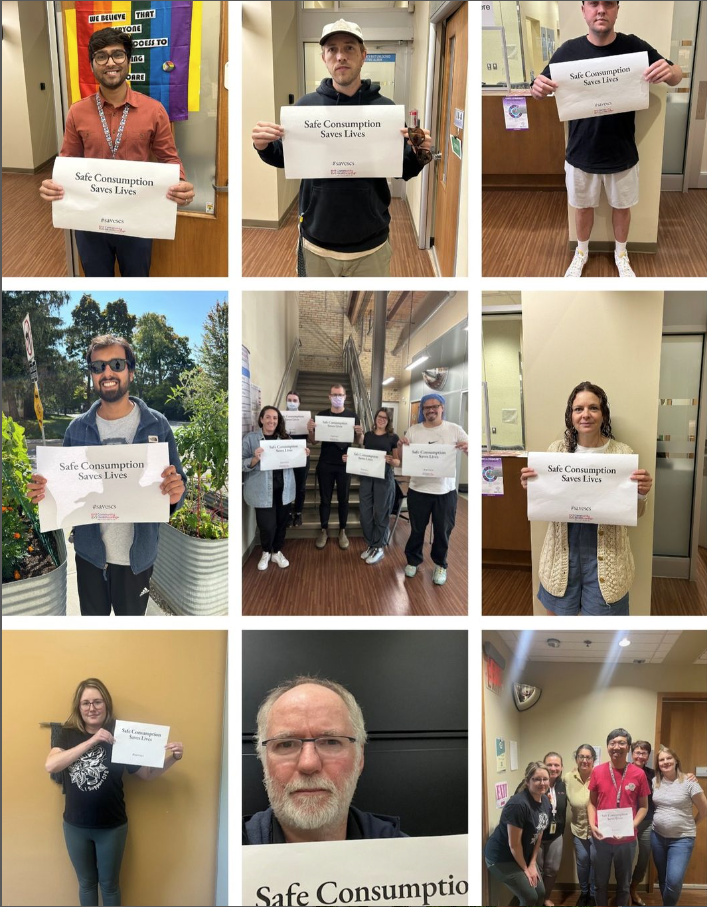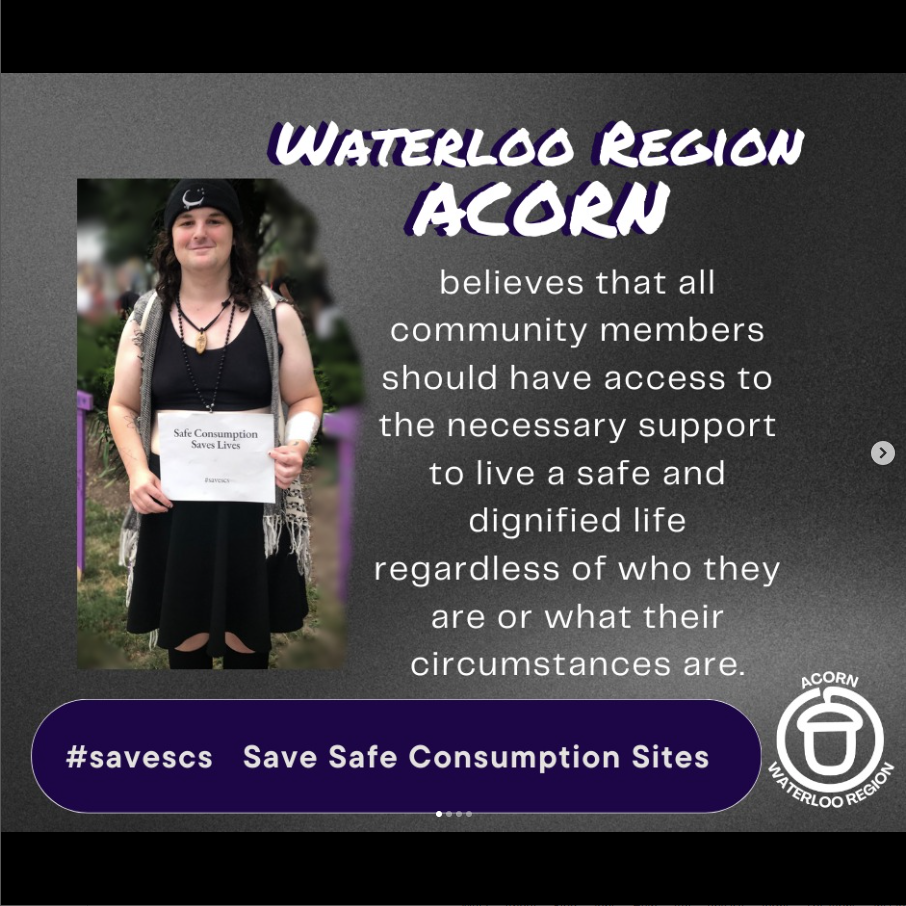
The government continues to make decisions without consulting the data and experts. We need evidence-based decision making, as opposed to ideological ones. Many of our most vulnerable neighbours are already battling increasing poverty and a housing crisis, and need more health care in this opioid epidemic, not less. Join the #SaveSCS campaign and call on the government to reverse the closures of the CTS sites, and continue integrating harm reduction models that are based on evidence.
#SaveSCS: Support the Social Media Campaign
Print the placard below, take a photo of yourself with the placard, share on your socials with the hashtag #savescs

Printable Placards
Downloadable .pdf format
Printable .png format
Write a letter to the Premier:
Visit the RNAO Action Alerts Page directly to send an email to the Premier, or copy and paste their email message below and send to doug.fordco@pc.ola.org:
Premier, your plan to gut and prohibit harm reduction programming in Ontario – including the closure of 10 supervised consumption sites (SCS) and no needle exchange – is a triumph of ideology over health care. People will die preventable deaths from your plan to withdraw these critical health care services.
The scale of Ontario’s toxic drug crisis is staggering. Across Ontario, an average of 10 people per day are dying from tainted drugs. In 2023 alone, over 3,800 people across Ontario died from the unregulated drug supply. Harm reduction programs such as SCS and safer supply save lives and open the door to treatment and recovery.
RNAO welcomes your investment in 19 Homelessness and Addiction Recovery Treatment (HART) hubs. The investment, however, fails to recognize the scale of Ontario’s toxic drug crisis. Greater investments in housing, treatment and other services are required. Further, your ideological response to this crisis excludes important evidence-based health care services required to lead people to recovery. The 19 new HART hubs must all offer harm reduction services, including supervised consumption, needle exchange and safer supply.
Harm reduction is health care.



